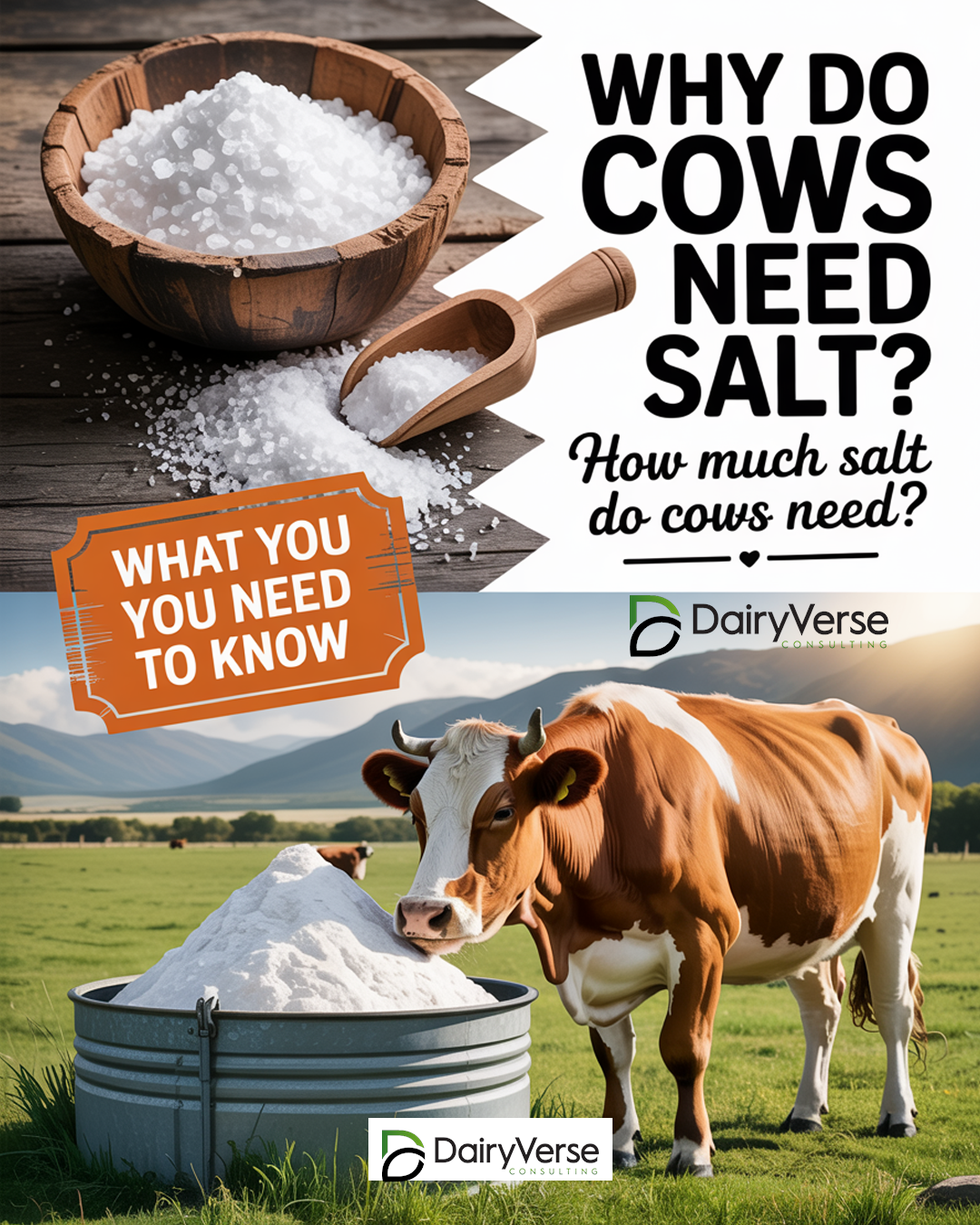Address
304 North Cardinal
St. Dorchester Center, MA 02124
Work Hours
Monday to Friday: 7AM - 7PM
Weekend: 10AM - 5PM
Address
304 North Cardinal
St. Dorchester Center, MA 02124
Work Hours
Monday to Friday: 7AM - 7PM
Weekend: 10AM - 5PM
Salt is a vital nutrient in every cow’s diet. Just like humans, cows require salt (sodium and chloride) to maintain healthy bodily functions. Without it, their performance, milk production, and overall health can decline.

Salt is a vital nutrient in every cow’s diet. Just like humans, cows require salt (sodium and chloride) to maintain healthy bodily functions. Without it, their performance, milk production, and overall health can decline.
The amount of salt a cow needs depends on several factors such as age, weight, weather, and diet.
Excessive salt intake without enough fresh water can be toxic. Always ensure your cows have access to clean drinking water at all times.